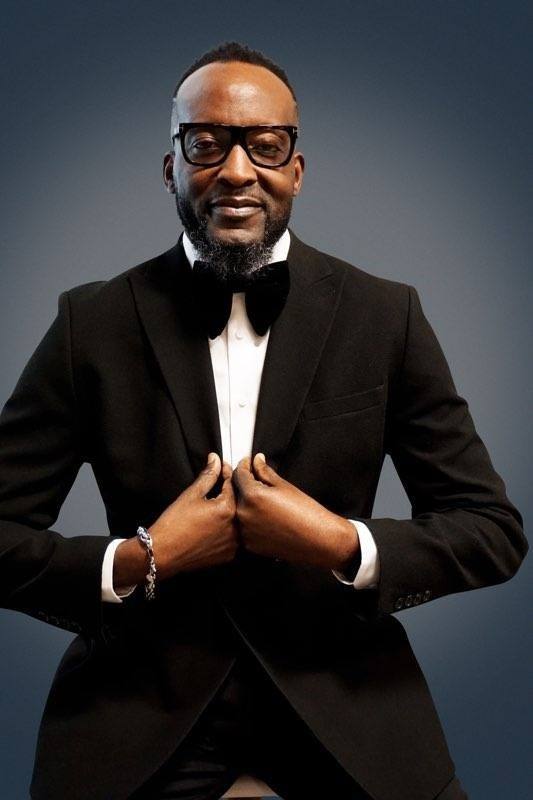-
Bariatric surgery helps pastor strike the right chord

Eric Mason Sr. is many things — pastor, bishop, educator, nonprofit director, mentor, husband, father and grandfather — but one of the activities he enjoys most is singing.
Because of his work, Eric, 55, travels a lot — both near his home in Savannah, Georgia, and beyond — preaching to different congregations and, often, leading them in song. He's even recorded three CDs. So when he noticed he couldn’t hold a note and "it felt like my lungs deflated" when he sang, Eric says he knew the weight he'd been gaining had started to affect his health.
Still, it took a devastating loss and hitting rock bottom for him to seek help.
A breakdown
Eric has a doctorate in theology and a 20-year history as a schoolteacher. He was serving as pastor of a nondenominational church and working on a prisoner reentry program for the Georgia governor's office when his mom became gravely ill.
Already battling diabetes and blindness in one eye, Eric's mom was diagnosed with pancreatic cancer. As her only son, Eric wanted to be by her side — driving her to and from appointments and helping her through treatment. But one day, a doctor told them there was nothing else treatment could do for her.
"My mom meant the world to me," Eric says. "And I couldn't do anything but hold her, pray for her and try to comfort her. But it was killing me."
She died a short time later.
Caring for a sick loved one and putting his own health on hold had taken a toll on Eric. Just one month after his mom died, his doctor told him he had developed diabetes, and if he didn't lose weight and change his lifestyle, he could be gone within 10 years too.
Around the same time, Eric also received bad news at work, learning his position within the governor's office was being eliminated due to budget cuts.
"It was a tough period for me," he recalls. "Things got really heavy, and I just broke down. I didn't want to preach. I didn't want to do anything."

Eric started going to counseling and trying to lose weight, but it wasn't working. "I was in such a low place," he says. "One day, when I was praying, I realized I needed to get help with my health and weight loss because I couldn't do it by myself."
That's when Eric reached out to the Bariatric Center at Mayo Clinic in Florida.
Building a foundation of health
Located in Jacksonville, Mayo Clinic in Florida, which houses the Bariatric Center, is just about an hour and 20 minutes from Savannah by car. Because he'd "heard so many good things about Mayo and had some family members who'd gone there and were happy with the service they received," Eric decided the trip was worth it.
Eric met Dr. Michael Edwards, a bariatric surgeon, who, along with the bariatric surgery team, determined Eric was a good candidate for a weight-loss procedure. Dr. Edwards detailed Eric's options, including the lifestyle changes he'd need to make in combination with any surgery.
"Most of the time, the behaviors many people come to weight-loss surgery with are the ones they tend to continue," Dr. Edwards says. "So I tell patients that the behavior changes we recommend to support success well after surgery need to start well before their surgery takes place."
Eric chose to have a sleeve gastrectomy — a laparoscopic procedure that removes nearly 80% of the stomach — and got to work preparing for the surgery by following the lifestyle modifications the bariatric surgery team had outlined for him.
"I went hard because I was really serious about getting the weight off," Eric says, noting he went from roughly 350 pounds before he started the weight-loss program to 280 pounds on the day of his surgery six months later.
From lifestyle changes to lifelong health
Now, two years post-surgery, Eric still follows the plan to a tee.
"It's a complete mindset change," he says. "I use a plate with sections, so everything is a small portion. I stop eating when my body tells me to stop, and I exercise regularly."
Eric adds that he also watches his calorie and sugar intake, and avoids several foods, including "all the white things," like grits, bread, rice and mashed potatoes. He also doesn’t drink soda. "For the most part, everything I eat is baked chicken, fish or turkey," he says.

What he says he's gotten in return for these changes is the rest of his life.
"I tell people this is the best thing that's ever happened to me," Eric says. "It changed my life completely. I used to have headaches and pain, and had so many things physically going on. Now, everything is about how can I help someone else or be a blessing to them. And it's about fulfilling my bucket list — going places like Las Vegas and Hawaii and walking this time instead of riding around on a scooter. It's like there's nothing I can't do at this point in my life if I put my mind and heart to it."
For their part, Eric says members of his congregation have been very supportive, noting that three have even opted to have weight-loss procedures themselves since his surgery.
His congregation also has been helpful in cutting out unhealthy foods, like fried chicken, which had been a staple at church gatherings.
"They call me the skinny pastor," Eric laughs. "I love putting on and modeling my skinny suits now."
"Eric's done phenomenal since his surgery," Dr. Edwards says. "You can tell he's much healthier and enjoying life, and is much more vibrant and more engaged with his congregation. It's remarkable."
Eric also has a new job in addition to his ministry work — serving as the director of family and community services at Greenbriar Children's Center, a Savannah-based nonprofit organization that serves children and families. But one of the major benefits Eric notices is how his weight loss and lifestyle changes have affected his singing. "My voice is lighter and more controlled now," he says. "And it's easier for me to hold a note. But the biggest thing is that I feel good doing it again."







